On February 2nd, 2022, the Belgian Data Protection Authority (APD) issued a decision on IAB Europe and the Transparency and Consent Framework (TCF).
First, let’s have a quick recap; who is IAB, and what is the TCF?
The APD considered some features in the TCF not to be compliant with the GDPR and ruled that:
1) The TC String is personal data As a result of the findings, several remedies have been imposed.
Impacting the TCF
UPDATE: Court of Justice of the European Union Ruling on IAB Europe’s Transparency and Consent Framework
In a significant development, the Court of Justice of the European Union (CJEU) has issued a ruling regarding IAB Europe’s “Transparency and Consent String” (TC String), a mechanism designed to align the online advertising auction system with the General Data Protection Regulation (GDPR) requirements. This ruling follows a previous decision by the Belgian Data Protection Authority in 2022, which had unfavorable implications for IAB Europe.
The CJEU determined that the TC String involves the handling of information relating to an identifiable user, thereby classifying it as personal data under the GDPR. Consequently, IAB Europe is recognized as a “joint controller” of this data. This designation stems from the role IAB Europe plays in influencing data processing operations, particularly when recording the consent preferences of users.
IAB Europe has expressed appreciation for the clarity provided by this ruling. The case is now set to return to the Belgian Market Court for further proceedings. This decision marks a pivotal moment in the ongoing discourse around data protection and privacy in the context of digital advertising and consent management.
For more detailed information and updates on this case, click here.
No. The APD ruling did not prohibit the TCF, nor does it suggest that the digital advertising ecosystem should not employ consent prompts to comply with legal requirements under the EU’s data protection framework.
Instead, the APD has asked IAB Europe to propose corrective measures, including delivering additional compliance functionality.
In principle no, taking into consideration the following:
While it may still seem unclear, IAB considers that the prohibition of the APD on legitimate interest only applies to those linked to tailored advertising and profiling purposes and not a general ban on legitimate interest for all purposes supported by TCF.
Keep in mind that other national DPAs, like the Italian Garante, have already excluded the use of legitimate interest as a valid legal basis (You can read more on this topic here).
At the moment, there seems to be little that can be done other than waiting to see how the appeal process may play out, together with any future TCF requirements.
As this is an ongoing legal matter, the choice of what to do is one that each business will have to decide for themselves.
This FAQ cannot be considered legal advice and is only meant to be a convenient summary of the ruling. Therefore, if you feel you may be at risk, please consider seeking assistance from your legal adviser.
However, in light of the ruling, companies who utilize TCF should be prepared for substantial changes (improvements) due to the judgment and may want to create mitigation plans and strategies in the case of various situations that may arise.
While we wait on a final decision, we recommend that iubenda clients do the following.
How to do it using the iubenda Cookie Solution
1) Under the IAB TCF section of the iubenda Cookie Solution configurator, click on “Edit”
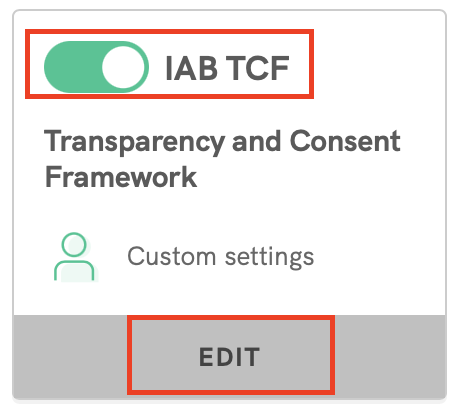
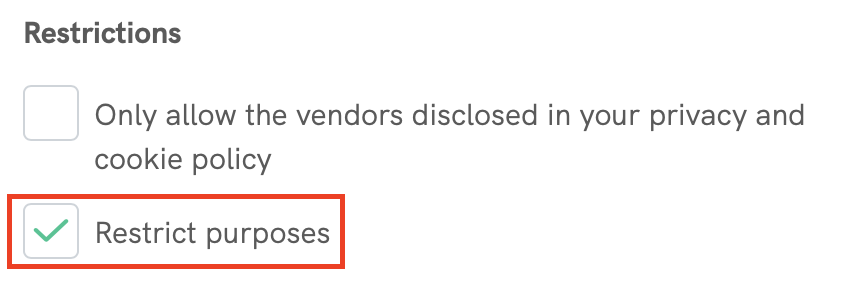
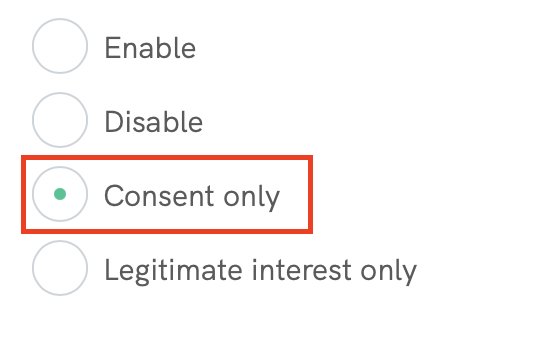
It is recommended to only display the TCF vendors you actually work with rather than the full list of TCF vendors. Vendors will soon be required to provide additional information inside the Global Vendor List (GVL), making it easier for publishers to decide which vendors to work with.
How to do it using the iubenda Cookie Solution
1) Under the IAB TCF section of the iubenda Cookie Solution configurator, click on “Edit”
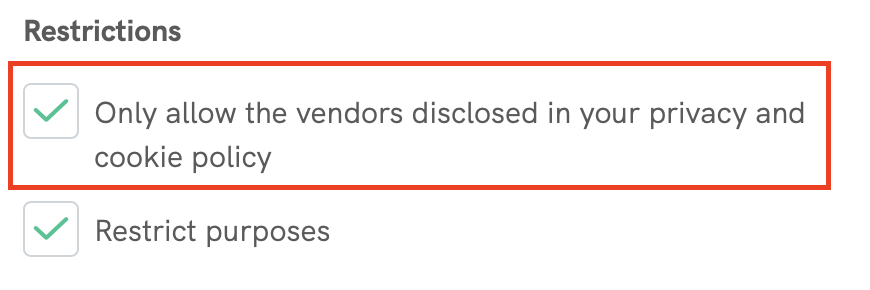
How to do it using the iubenda Cookie Solution
How to do it using the iubenda Cookie Solution
1) In the iubenda Cookie Solution configurator, select the GDPR compliance section and click on “Edit”
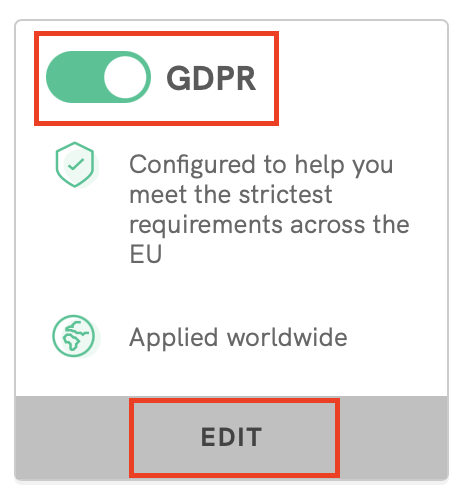

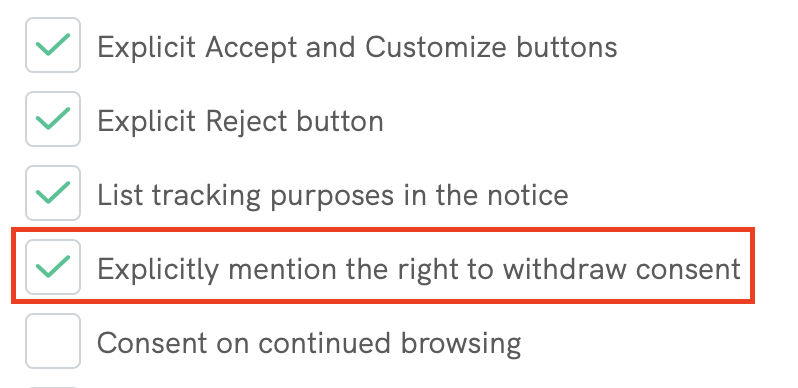
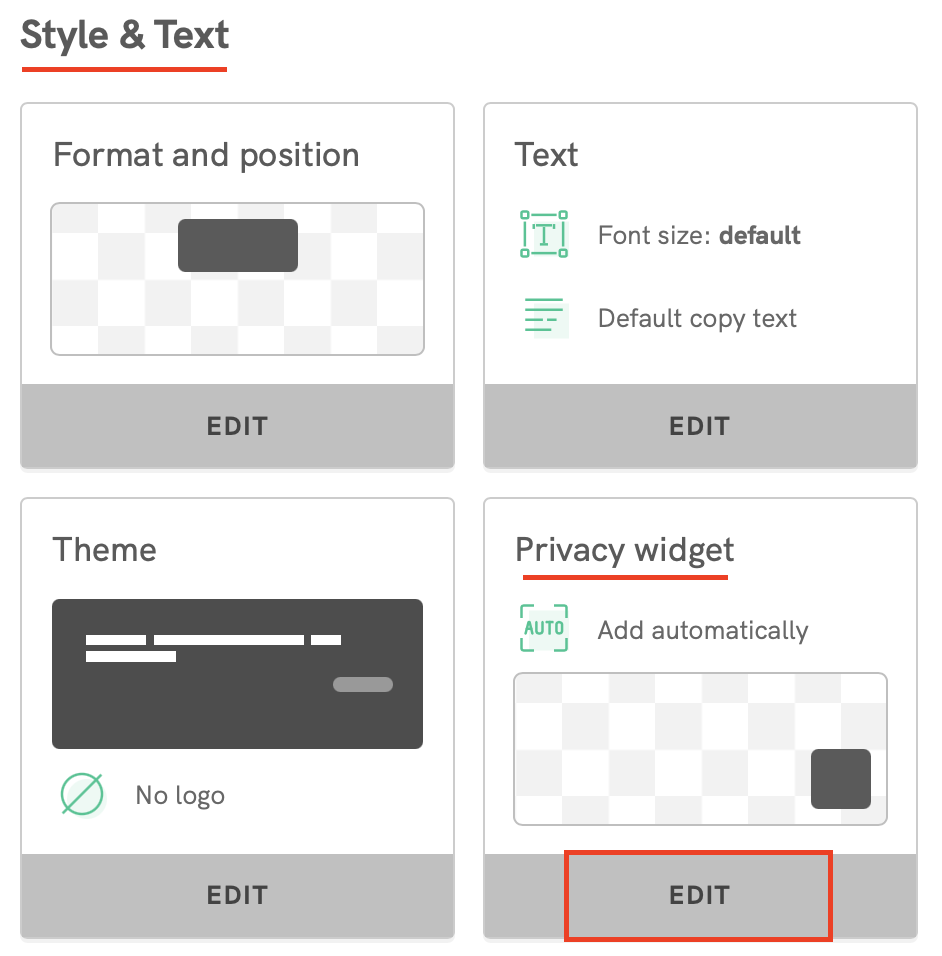
Once all the above is done, you might consider recollecting consent from your users.
Regarding timing and procedure, The APD expects IAB Europe to submit an Action Plan within two months from the publication of the decision. Once the Belgian Data Protection Authority validates the action plan, the compliance measures should be completed within a maximum period of six months.
IAB is confident that the Action Plan and coming dialogue with the APD is an opportunity. It’s possible that implementing the APD’s recommendations in this situation might result in a new version of the TCF that is more aligned with the APD’s expectations, qualifying it as a potential candidate for a Code of Conduct, with the APD as the primary supervisory authority.
IAB Europe has announced that it will appeal some part of the decision to the Belgian Market Court.